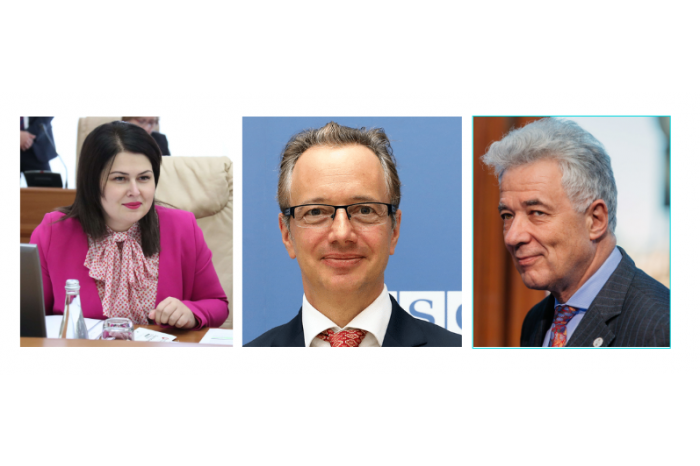Moldovan deputy premier asks OSCE to get involved in ensuring physicians' access to Security Zone's settlements
15:11 | 30.03.2020 Category: Official
Chisinau, 30 March /MOLDPRES/ - Deputy Prime Minister for Reintegration Cristina Lesnic today submitted a letter to the OSCE Mission in Moldova and the special representative of the OSCE chairmanship-in-office, Thomas Mayr-Harting. In the letter, the Moldovan official asked for the OSCE’s involvement to ensure the free access of physicians to all settlements of the Security Zone and in both directions of the Dniester river, given the pandemic of the new coronavirus COVID-19, the Reintegration Policies Bureau has reported.
A sensitive problem deals with the physicians’ access to those 80 settlements placed in the Security Zone. Only one physician works in many of these settlements each and some of them live on the left bank of Dniester and cannot move to work.
„Chisinau, as never before, now needs medical staff (physicians, nurses, hospital physicians, emergency physicians), who serve the district hospitals and the settlements of the Security Zone or the right bank has not enjoyed enough medical personnel for two weeks already. I signal this problem and stress that, in crisis conditions, to save lives, physicians always have priority,’’ the letter signed by Cristina Lesnic reads.
According to the deputy PM for reintegration, although there is COVID-19 pandemic, not only this virus must be treated. Physicians are overtired and need to be replaced in shifts. An intermediary solution is not a sustainable solution and Chisinau presently tends to identify the respective solution, Cristina Lesnic noted.
In this situation, Chisinau comes up with a proposal to intervene, with solidarity, in order to overcome this deadlock, establish an urgent agreement between Chisinau and Tiraspol in the case of physicians’ movement. Taking into account that, according to a message by the OSCE Secretary General from 17 March 2020, all OSCE missions must remain functional and monitor the coronavirus situation, the deputy prime minister for reintegration called to find a medical solution.
In a pragmatic and positive approach, Chisinau proved, by its initiatives, orientation to results and promptly acted for the authorization in a sped up procedure and in a 3-day term, (the standards procedure being of 30 days) the import of medicines to the Transnistrian region by seven economic agents from the left bank of Dniester, registered at the Public Services Agency, in order to fully ensure the residents’ access to medicines. Besides, about 60 economic agents were registered in the TRACES system of the National Food Safety Agency for the import of food products, phyto-sanitary goods and fertilizers.
Although the Moldovan parliament’s 17 March decision on the measures enforced within the state of emergency is applied on the entire territory of the country, after two weeks of state of emergency in Moldova, in the Transnistrian region the measures start being different from the ones enforced on the right bank of Dniester.
At present, only people who have ‘’Transnistrian papers’’, those with residence in the zone and the diplomatic corps are allowed access to Transnistrian region. Any person who enters the region with Moldovan acts is to be in a 14-day procedure of quarantine. Exception is made, based on mutual agreements, only for the farmers from Dubasari, a small number of policemen/firemen, employees from penitentiaries and the gas/electricity intervention services. Nevertheless, we consider individual situations coming from the local public administration.
We made sure that the drug store from the Cocieri village is already functional and people can have access to medication.
We will keep a close eye and will intervene with measures aimed at solving the citizens’ problems, Cristina Lesnic added.

